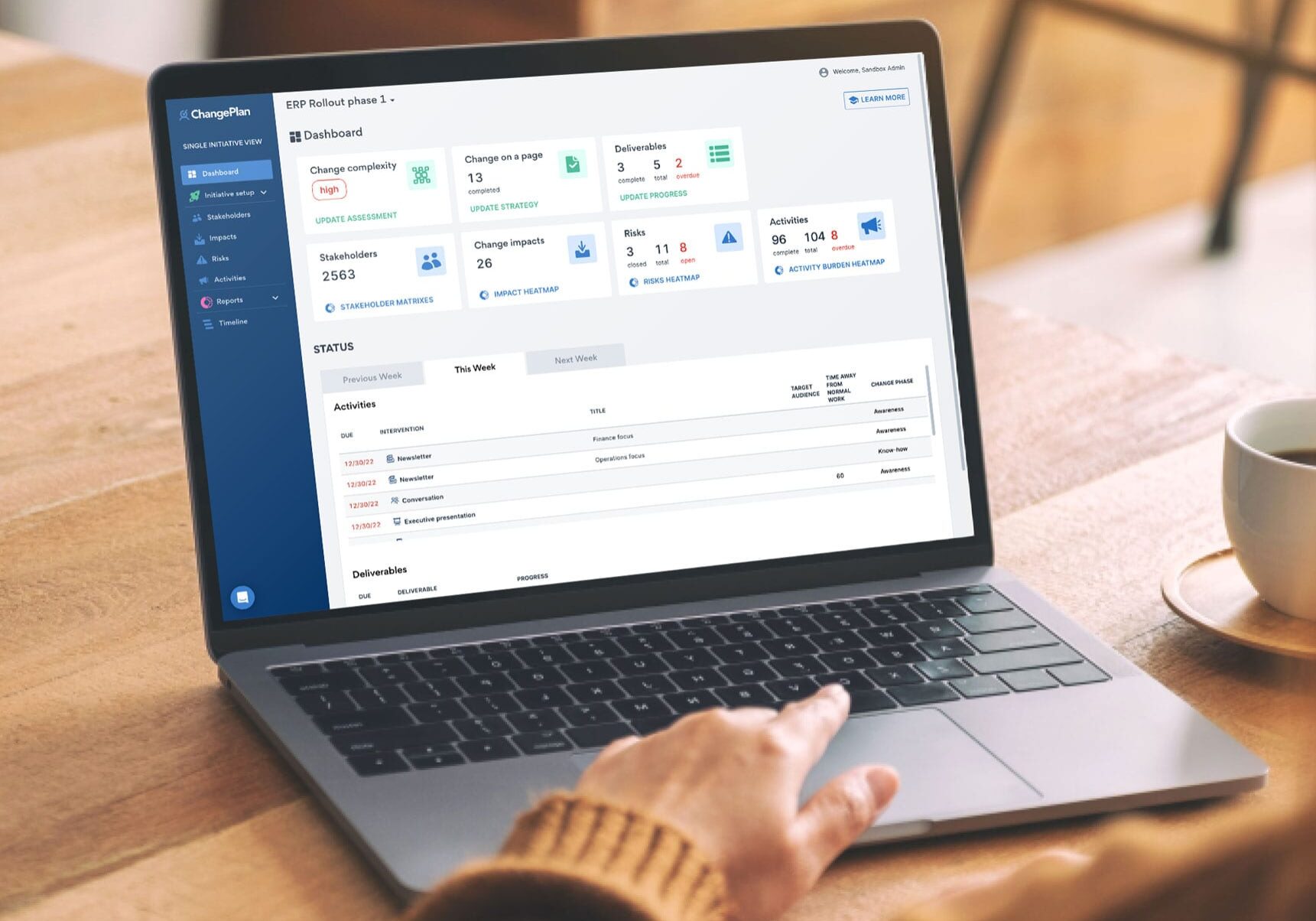Organizations are increasingly enabling managers to manage their operational change themselves, but how to help them overcome the administrative burden?
Until recently, the role of operational managers role in leading change management efforts was relatively limited.
Typically, this involved receiving briefings from change managers to ensure they understand the basics of change management and the change process.
Change managers offered these managers tips and advice on how they could best support their work and the change process.
A trend we have witnessed recently is that many organizations are taking this a large step further, not only relying on managers to merely support the change process, instead giving these managers a role in the actual management of operational change.
When managers are deputized to lead operational change
Managers not only understand what change and change leadership means to them, they appreciate what drives change, why it’s important to involve their employees in the change and how best to lead the change.
They even appreciate the value of being prepared and applying the fundamentals such as understanding the impacts of the changes on their people and how best to ensure their business is ready for the change.
Benefits of deputizing managers to lead operational change:
- They are being upskilled in an invaluable leadership skill
- Rather than ‘being’ changed, they are leading the change
- Having more information about the future state can allow them to better plan for resource allocation
However, there is a significant obstacle to getting managers to lead operational change.
Popular change management approaches are administratively heavy, and involve a ‘maze’ of spreadsheets, templates and documents.
As change managers, we often take it for granted that our change approaches rely on numerous spreadsheets and templates, which need to be continually referred to, updated and cross referenced. Given that it is not their everyday role, managers struggle to remember which spreadsheets or templates to use at various points; where these templates are stored or where they have saved the completed ones.
This administrative overhead is one of the key factors that prevents managers’ involvement in the change process.
In addition to being asked to adopt a series of leadership skills outside of their regular roles, being required to wrangle numerous complex, overlapping, brittle and at-times nonsensical spreadsheets, documents and slide decks proves a step too far.
Finally, being able to generate regular progress reports for their leaders is highly time consuming.
Indeed, managers find the administrative tasks involved with change such a burden that…
they may skip crucial change management steps to try to expedite getting the change implemented so they can focus on their ongoing operational activities
Their perception of the credibility of the change management discipline is heavily damaged, and they may be reluctant to step forward to help manage change efforts in the future.
We created ChangePlan for everyone, including managers.
ChangePlan is a digital solution that helps managers intuitively move through all the key steps necessary to manage their change effectively:
Easy to use
Managers are guided by prompts and videos guide them through the process.
Everything is in one place
One common platform brings uniformity to change management data capture and reporting
Your data is connected
Use existing information and duplicate content when necessary. Receive support from dedicated change managers.
Real time reporting
Timelines are generated from the change activities created, as is a status report providing online visibility of the plan and progress
ChangePlan helps your managers get up to speed quickly, reducing time spent on the administrative tasks related to managing change.
In no time, they will be able to manage multiple operational change initiatives, utilizing ChangePlan’s portfolio management features.
- It can lead to more successful operational change outcomes as managers have a close understanding of the requirements of their teams and how changes will impact upon various groups and individuals
- It frees experienced change management resources to be utilised on larger scale enterprise change initiatives
- Change activities can be monitored and adjusted by managers who are embedded and in constant contact with those stakeholders receiving them
We’ll be delighted to discuss your change needs and offer you a demonstration of ChangePlan.











